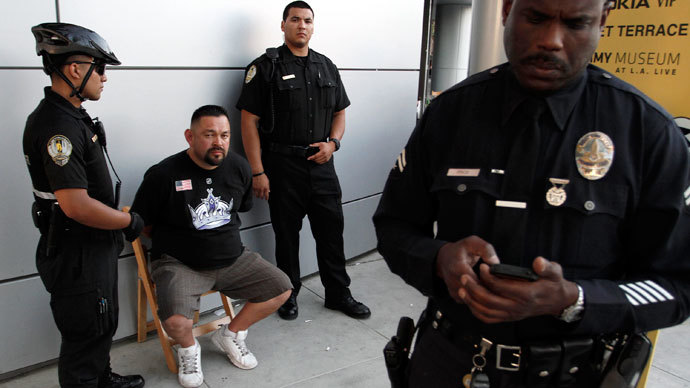The Supreme Court at oral arguments Tuesday appeared wary of granting police unlimited authority to search cellphones seized from suspects without a warrant.
But no consensus emerged over what narrower rule could provide authorities enough leeway to deal with rapidly advancing mobile technology that can be used for criminal activity.
The high court was considering whether police need a warrant to search a suspect's cellphone, reviewing a pair of cases offering the latest collision at the court between the capabilities of technology and the centuries-old prohibition on unreasonable searches and seizures.
The eventual ruling, expected by the end of June, could define the parameters of law enforcement tapping into the trove of data stored on smartphones and other mobile devices.
California's solicitor general, Edward Dumont, made little headway with his argument that a cellphone should be treated no different than a cigarette pack or address book seized from a suspect's pockets, which precedents from the predigital era authorize police to search during or immediately following an arrest.
Under that approach, Justice Elena Kagan said, a driver arrested for failing to wear a seat belt could see vast portions of his personal life—photos, web searches, medical records, intimate messages—exposed to police inspection because modern smartphones typically carry such private data.
The government's "argument applies to any arrest. And it applies to everything on a cellphone," Justice Kagan said. "People carry their entire lives on cellphones. That's not a marginal case. That's the world we live in, isn't it?"
In the California case, police searched a suspect's phone several hours after he was arrested to find photos and entries linking him to gang membership.Read the rest of the story HERE.
If you like what you see, please "Like" us on Facebook either here or here. Please follow us on Twitter here.





No comments:
Post a Comment